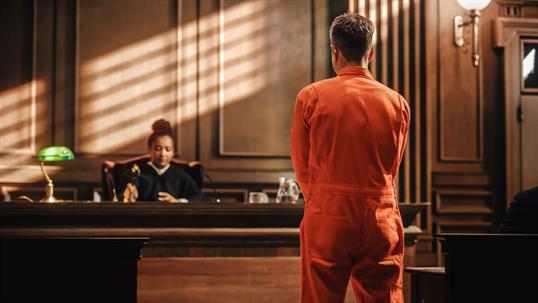When most people think about criminal cases, they imagine a dramatic courtroom trial where the truth is revealed and justice is served. But the reality is often much more complicated. Many cases are resolved through plea deals—and sometimes, that even means a person pleads guilty to something they didn’t do.
So why would anyone make that choice?
The Risk of Trial vs. the Certainty of a Plea Deal
In many cases, a defendant faces multiple charges carrying serious penalties. Going to trial can mean risking decades in prison if convicted on the most serious charges. A plea deal, on the other hand, often lands “in the middle”—no one is thrilled with the outcome, but both sides can live with it.
For example, if someone is charged with three offenses—one carrying 5 years, another 10, and another 20—the risk of losing at trial can feel overwhelming. Even if the defendant insists they are innocent of one or more charges, the jury might not see it that way, especially if the evidence on another charge looks strong.
When Pleading Becomes Strategic
In situations like this, defense attorneys may negotiate with prosecutors for a creative arrangement. A defendant might plead guilty to lesser charges—even charges they dispute—to avoid the possibility of being convicted of something far worse.
This doesn’t mean they’re “lying” to the court. Instead, it’s a calculated choice: acknowledging that a jury could reasonably find them guilty, even if the truth is more complex. It’s a way of managing risk in a system that doesn’t always leave room for gray areas.
The Stakes in Sexual Assault Cases
Sexual assault cases often go to trial because they usually boil down to two conflicting accounts: one person says there was consent, the other says there wasn’t. Pleading guilty in these cases carries enormous consequences—mandatory sex offender registration, jail time, and long-lasting damage to reputation.
That’s why, in such cases, defendants and their attorneys must weigh every option carefully. Sometimes, the risk of trial is worth it. Other times, a plea deal may protect the accused from the harshest outcomes.
The Importance of Legal Guidance
At the end of the day, deciding whether to accept a plea deal is one of the most difficult choices a person can face in the criminal justice system. It requires experience, strategy, and an understanding of both the risks and the possible outcomes.
At Just Criminal Law, we know you only get one shot at justice—so make yours count. If you’re facing serious charges, don’t make these decisions alone. Contact our team today. We’re available by phone, text, or chat, day or night.

